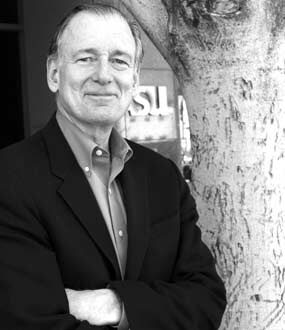Author: Citizens must sacrifice for U.S. to achieve
energy independence
Consumers need to accept that they will face higher utility bills as the nation converts to renewable sources of energy, Hakes said. But he said citizens need to understand that they must sacrifice time as well by taking public transportation, carpooling, bicycling and walking.
Hakes said parents can help ease the transition to energy independence by encouraging children to conserve by taking steps such as turning off lights and hair dryers when they aren't needed.
"Little things make a difference, including checking tire inflation, keeping the inside temperature of your house consistent with the outdoors and talking with your family on how not to waste energy," Hakes said.
Hakes said America's energy future will include biofuels, electric vehicles and emerging sources of energy such as algae."Algae is a great processor of energy from the sun," Hakes said. "It has a number of technical advantages in producing gasoline and jet fuels."
Later, Hakes gave a speech at Arizona State University, telling the audience that taxing carbon output can help fund research into renewable energy sources."
"Carbon has to pay its way if we are to resolve this energy predicament," Hakes said.
Jonathan Fink, the Julie A. Wrigley director of ASU's Global Institute of Sustainability and the university's chief sustainability officer, said Arizona's requirement that utilities get 15 percent of their energy from renewable sources by 2025 is an example of the sacrifice Hakes recommends.
"It's not just up to you and me, but rather the utility companies must begin to sacrifice first," Fink said.
Copyright © 2008 WMICentral.com - The White Mountain Independent's Online Edition To subscribe or visit go to: http://www.wmicentral.com
